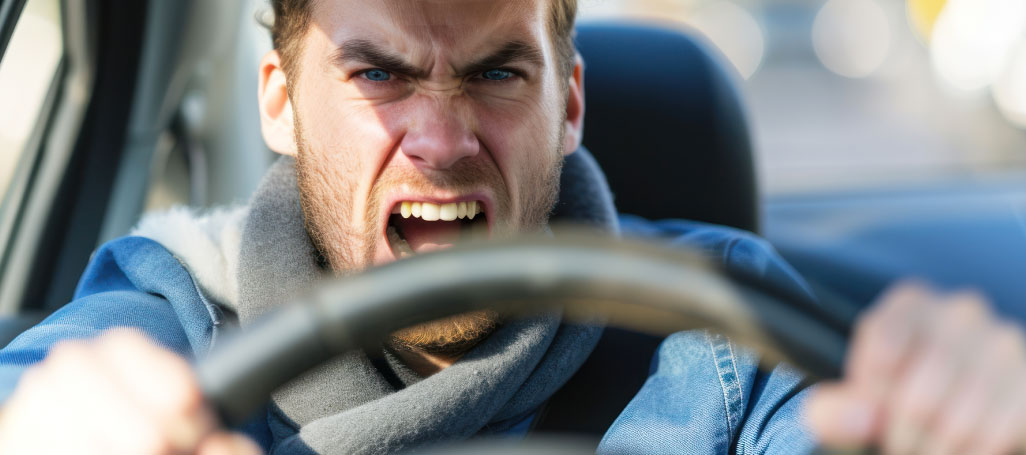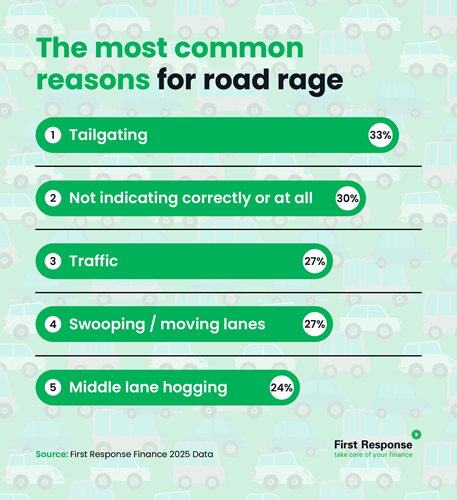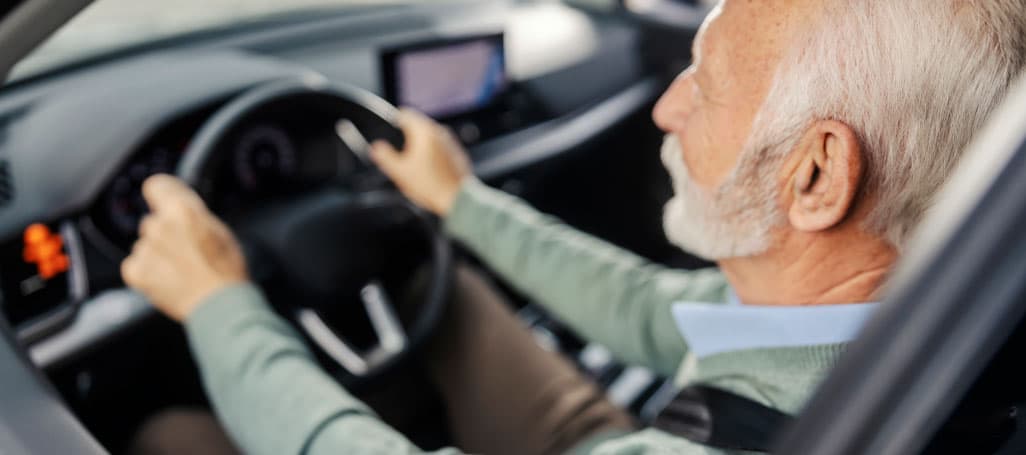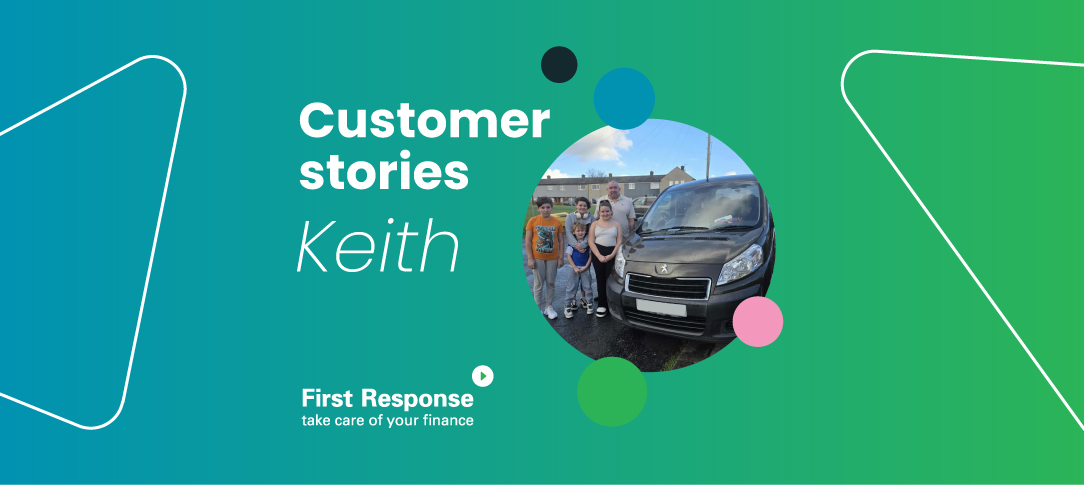The state of road rage in the UK – what's driving our anger?
Explore the how many Brits have road rage, the triggers and reactions, and who the worst offenders are in this blog.

Road rage is on the rise across the UK, with millions of drivers admitting to losing their cool behind the wheel. Our latest study reveals the scale of the problem, the biggest triggers, and the most common reactions.
How angry are UK drivers?
Our research found that one in ten Brits (9%) experience road rage every single day, while more than half (53%) admit to feeling frustrated at least once a month.
The leading cause of road rage is tailgating, which irritates one third (33%) of drivers, followed closely by failing to indicate correctly (30%). Traffic congestion and lane swooping are equally frustrating for 27% of drivers, while middle lane hogging annoys nearly a quarter (24%).
When tempers flare, the most common reaction is to beep the horn, with almost one third (30%) of drivers admitting to this response. Swearing comes a close second at 29%, and a quarter (25%) resort to gesturing with their hands. A smaller proportion try to calm down by taking deep breaths (16%) or flash their headlights (13%).

Gen Z are the worst offenders
Generational differences reveal striking trends in how drivers experience and react to road rage.
Gen Z drivers, aged 18-24, are the most volatile group, with almost a quarter (23%) admitting to daily road rage - far higher than any other generation. Interestingly, Gen Z are the only age group most likely to lose their temper over slow drivers, whereas older generations are more irritated by tailgating and traffic congestion.
Millennials are not far behind, with over two thirds (67%) experiencing road rage at least once a month. More mature drivers tend to swear more frequently when frustrated, while younger drivers are more likely to respond by honking their horn.
In terms of a gender split, men are the main culprits, with over half (57%) of men admitting to experiencing road rage monthly, compared to 49% of women.
Both men and women are equally as likely to get angry at tailgating (33% and 32% respectively), the main trigger for road rage across genders, whereas women are most likely to swear (31%) and men are most likely to beep the horn (32%).
BMW drivers react fast
It seems there's a correlation in car makes and their drivers experiencing road rage. BMW drivers top the list, with three quarters (76%) experiencing road rage monthly and over one quarter of BMW drivers (27%) admitting to daily frustration. Their most common reaction is to beep the horn, with 42% choosing this to show their frustration, and their biggest trigger is traffic congestion (37%).
Not far behind are Tesla drivers, who also show high levels of road rage. Almost three quarters (71%) reported monthly incidents and over one quarter (28%) daily.
Unlike BMW owners, Tesla drivers are most likely to gesture with their hands (43%) when angry. Their main triggers include slow driving, lane swooping, and traffic, each irritating 25% of Tesla owners.
Interestingly, drivers of white cars are the most likely to experience road rage monthly (61%), while over half (59%) of black car drivers admit to similar levels of frustration.
Road rage capitals
Regional data shows that Southampton takes the top spot as the UK's road rage capital, with almost two thirds (61%) of residents experiencing road rage monthly and 14% daily.
London follows closely, with traffic being the main culprit for 34% of drivers.
Manchester also ranks high, with 14% admitting to daily road rage and horn-beeping being the most common reaction (32%).
On the other end of the spectrum, Bristol is the calmest city in the UK. Only 7% of Bristolians experience daily road rage, and 38% say they only lose their temper once a year.
Top 10 cities by daily road rage:
- Southampton - 14%
- Manchester - 14%
- London - 13%
- Liverpool - 10%
- Birmingham - 9%
- Leeds - 8%
- Sheffield - 8%
- Cardiff - 8%
- Edinburgh - 8%
- Bristol - 7%
Top 10 cities by monthly road rage:
- Southampton - 61%
- London - 60%
- Manchester - 58%
- Liverpool - 55%
- Birmingham - 54%
- Leeds - 52%
- Sheffield - 50%
- Cardiff - 49%
- Edinburgh - 48%
- Bristol - 33%
The impact of road rage
Our research shows road rage is a growing issue, especially among younger drivers and certain car owners. Regional hotspots like Southampton and London highlight how congestion fuels frustration, while BMW and Tesla drivers stand out for their quick reactions.
Motoring expert at First Response Finance, Jonathan, comments:
"These findings highlight just how emotionally charged UK roads have become. Tailgating, which tops the list as the leading cause of road rage, is not only aggressive but also incredibly dangerous as it reduces reaction time and significantly increases the risk of collisions. It's concerning that nearly one in ten drivers experience road rage daily, with younger drivers, particularly Gen Z, showing the highest levels of frustration.
"What's particularly interesting is the shift in triggers across generations. While most drivers are angered by tailgating or traffic, Gen Z are uniquely irritated by slow drivers - suggesting a growing impatience behind the wheel.
"But road rage doesn't just escalate tension, it can hit drivers hard in the wallet. Aggressive behaviours like tailgating, swerving, or brake-checking can lead to penalties for careless or dangerous driving, with fines, points, or even driving bans. These offences also have a direct impact on insurance premiums. Even minor convictions and penalties can increase annual premiums by hundreds of pounds, and insurers may refuse to pay out if aggressive driving leads to a crash.
"The fact that over half of Brits admit to experiencing road rage monthly, and that many respond with beeping, swearing, or gesturing, highlights the need for better education around road etiquette and emotional regulation. A calmer driving culture would not only improve safety but also protect drivers from serious financial and legal consequences."
Sources and methodology:
- Survey of over 2,000+ UK adults (18+), October 2025
Additional sources:
Which? - How much could speeding impact your car insurance?
Go Compare - Breaking: drivers could be paying an additional £291 million for car insurance due to speeding convictions
You may also like...
Hannalore | Jan 2026




